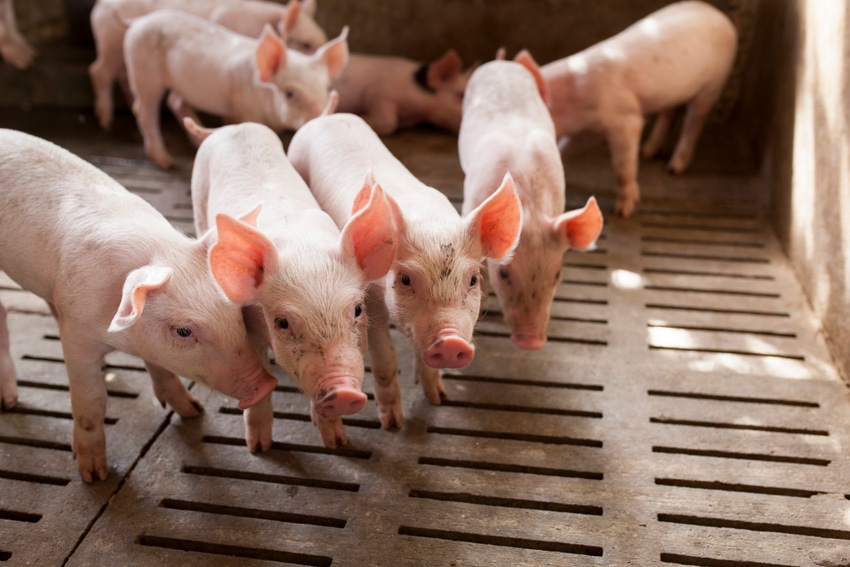New biological remedy to reduce diarrhea in piglets may constitute alternative to medicinal zinc added to feed rations.
March 27, 2020

How can nanobodies help prevent diarrhea in piglets? This question will be answered by the biotech company Bactolife, in cooperation with Novozymes, the Technical University of Denmark, SEGES (Danish Agriculture & Food) and Aarhus University. Research efforts will take place within the framework of the Ablacto+ project.
Professor Charlotte Lauridsen with the Aarhus department of animal science explained, "Many piglets suffer from weaning diarrhea when they are removed from the sow and have to get used to new facilities and new feed. So far, antibiotics and high concentrations of zinc oxide have been used to treat weaning diarrhea. However, major consumption of antibiotics may result in resistance development, and medicinal zinc, a heavy metal, will be banned in the [European Union] in 2022. Zinc accumulates in the soil when animal slurry is distributed to the fields. Therefore, we have to find alternatives."
The project recently received a grant of 11 million Danish kronar to continue the efforts to develop a nanobody-based product for the commercial market (Ablacto+).
"Ablacto+ contains special proteins, nanobodies, which are able to bind and neutralize the Escherichia coli bacteria that cause diarrhea in piglets. The nanobodies are derived from antibodies found in llamas. Llamas and other animals from the Camelidae family produce antibodies, the binding site of which has special characteristics: They are more stable and more compact than similar proteins. They do not interact with other substances or processes in the body, and they do not induce resistance. It seems obvious to use these for our purpose," noted Sandra Wingaard Thrane, Ablacto+ project leader and Bactolife co-founder.
A Belgian university discovered the special antibodies in llamas, but the university’s general patent on the use of this type of molecule has expired, Aarhus said in an announcement. This allowed Bactolife to use these antibodies in its research efforts.
The Bactolife product is still under development, and — by means of a grant from Innovation Fund Denmark in the form of an Innobooster project — preliminary experiments have been accomplished in laboratories and experimental facilities at the Aarhus facilities in Foulum.
"We examined whether provision of the nanobodies developed had an effect on an E. coli O149 infection in pigs. We achieved interesting results that call for further tests with doses and allocation periods," Lauridsen said.
On behalf of Aarhus University, senior researcher Nuria Canibe will be in charge of the further research and project development that may result in a feed additive for piglets with the aim of preventing outbreaks of E. coli-induced weaning diarrhea, Aarhus said.
The next step will be to test the product in production herds and, subsequently, to develop the product further in order to be able to produce it at a competitive price and to make it ready for the market by ensuring the necessary approvals, the announcement noted.
You May Also Like


.png?width=300&auto=webp&quality=80&disable=upscale)
